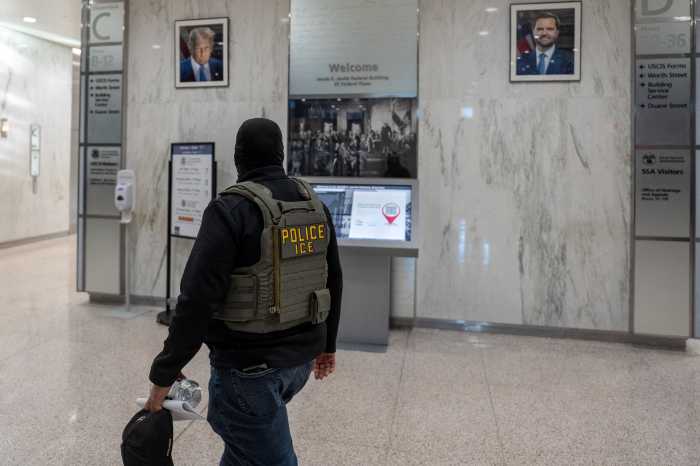As former President Bill Clinton tells it in “My Life,” his autobiography, he was presented with a losing issue on gays in the military within days of taking office in 1993. The public, the military, and Congress overwhelmingly opposed the promise Clinton made during his 1992 campaign to lift the ban on gay men and lesbians serving openly in the military.
Eight days after his swearing in ceremony, Clinton accepted a compromise by Senator Sam Nunn, the Georgia Democrat who led the fight against lifting the ban. Nunn “proposed to him the six-month delay to fashion a suitable compromise, suggesting that only a public detour would get gay soldiers out of the headlines so Clinton could begin his chosen agenda,” according to “The Clinton Tapes: Wrestling History with the President,” a 2009 book that was based on 79 taped interviews Taylor Branch conducted with Clinton during his eight years in office.
The policy, called Don’t Ask, Don’t Tell, was signed into law by Clinton later in 1993. What he called an “honorable compromise” at the time has cost more than 13,000 gay men and lesbians their military jobs since that year.
Fast forward to 2010. A newly elected president is faced with a gay and lesbian community clamoring for him to deliver on the promises he made during his 2008 campaign. Among those promises is ending Don’t Ask, Don’t Tell.
The president, Barack Obama, sent Robert Gates, his secretary of defense, and Michael Mullen, chairman of the Joint Chiefs of Staff, up to Capitol Hill on February 2 to tell a Senate committee that they no longer favored keeping the Don’t Ask, Don’t Tell policy.
“Speaking for myself and myself only, it is my personal belief that allowing gays and lesbians to serve openly would be the right thing to do,” Mullen said. “No matter how I look at this issue, I cannot escape being troubled by the fact that we have in place a policy which forces young men and women to lie about who they are in order to defend their fellow citizens.”
Similarly, Gates told the committee, “The president announced he will work with Congress this year to repeal the law… He subsequently directed the Department of Defense to begin the preparations necessary for a repeal of the current law and policy. I fully support the president’s decision.”
The statements from Gates and Mullen were greeted with a flurry of press releases from gay groups praising them and welcoming the apparent change in posture.
What was little commented on was that Gates and Mullen said that any change to the policy was at least two years away — following one year of study, presumed action by Congress, and another year of implementation.
During the hearing, some Republicans paid lip service to the gay men and lesbians currently in the military, but made it clear they wish to honor their service by firing them from their jobs. While a House bill to repeal the policy has 187 co-sponsors, at least one leading Democrat, Ike Skelton from Missouri, the chairman of the House Armed Services Committee, who has more than a little say in the matter, has said he opposes changing the law.
Gates told the committee that the Pentagon may slow the pace of discharges under Don’t Ask, Don’t Tell by changing the evidence required to begin a discharge, but DoD cannot halt discharges altogether.
Gates is rumored to be eyeing departure from his job. He was appointed in late 2006 by former President George W. Bush. Mullen was appointed to his first two-year term as chairman in 2007 and reappointed this past September.
If the two-year schedule for full repeal holds, Mullen, who joined the military after graduating from the US Naval Academy in 1968, may be stepping down just as the law is being implemented.
It may be that like Clinton before him, Obama has just won not a six-month reprieve to get “gay soldiers out of the headlines,” but a much longer hiatus on the issue — two years in this case. Two years also gives opponents of repeal plenty of time to marshal their forces.
In a 2009 conference call with reporters, Lawrence J. Korb, a senior fellow at the Center for American Progress, said that the six-month delay was central to Clinton’s failure, though we now know from the Branch book that Clinton had capitulated at the start of that six months.
“The longer you wait, the harder it’s going to be,” Korb said last year. “If you look at how Clinton slowed down the process by appointing groups to study it, he just lost the momentum.”
Korb also said last year, “The military will resist the change. Number two, even after you make the change, they will slow-walk it if they can.”
On February 2 on MSNBC, Korb said, “I think that’s what we have to be very careful of, that people don’t try and slow-walk this thing.”




































